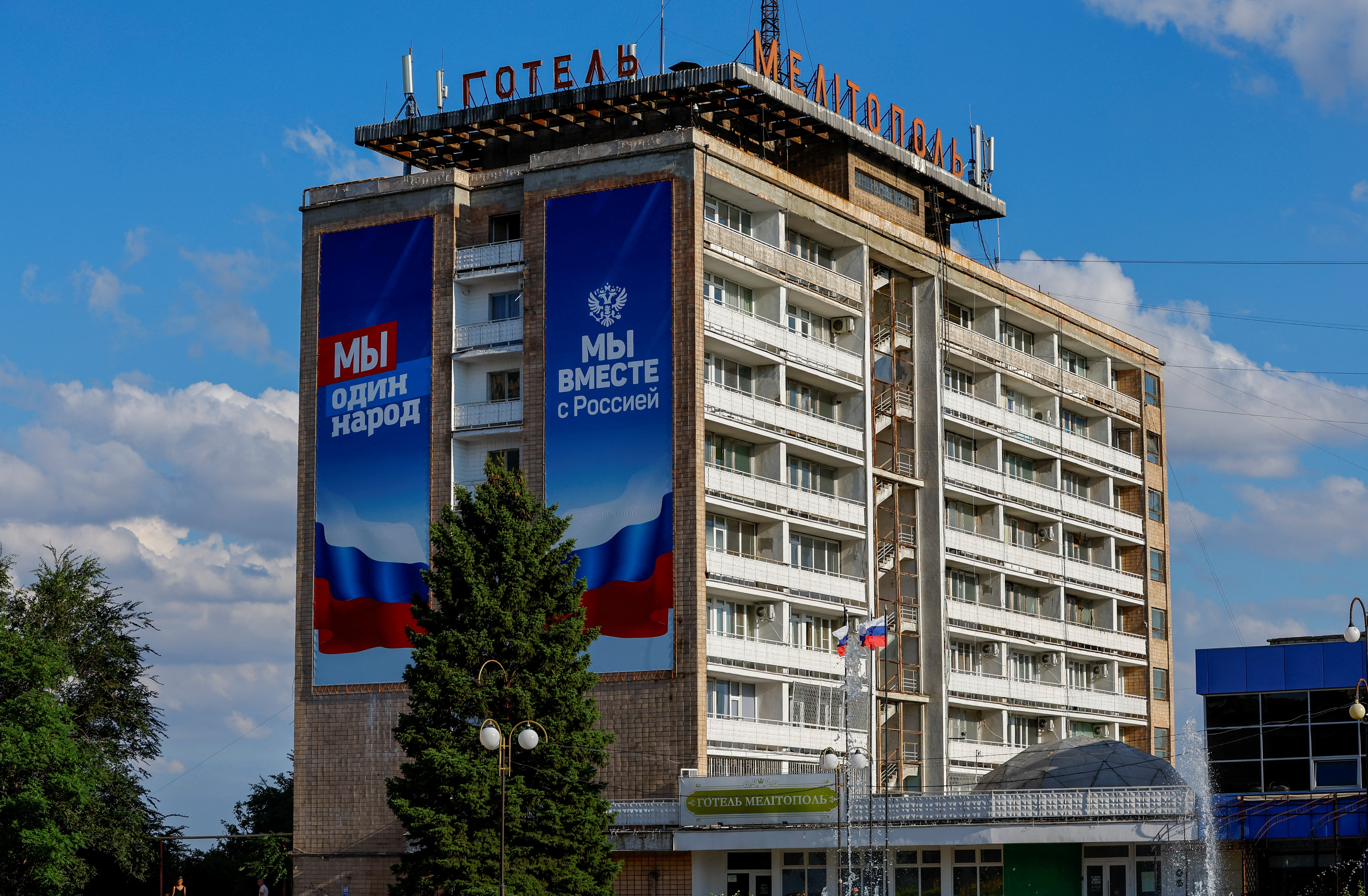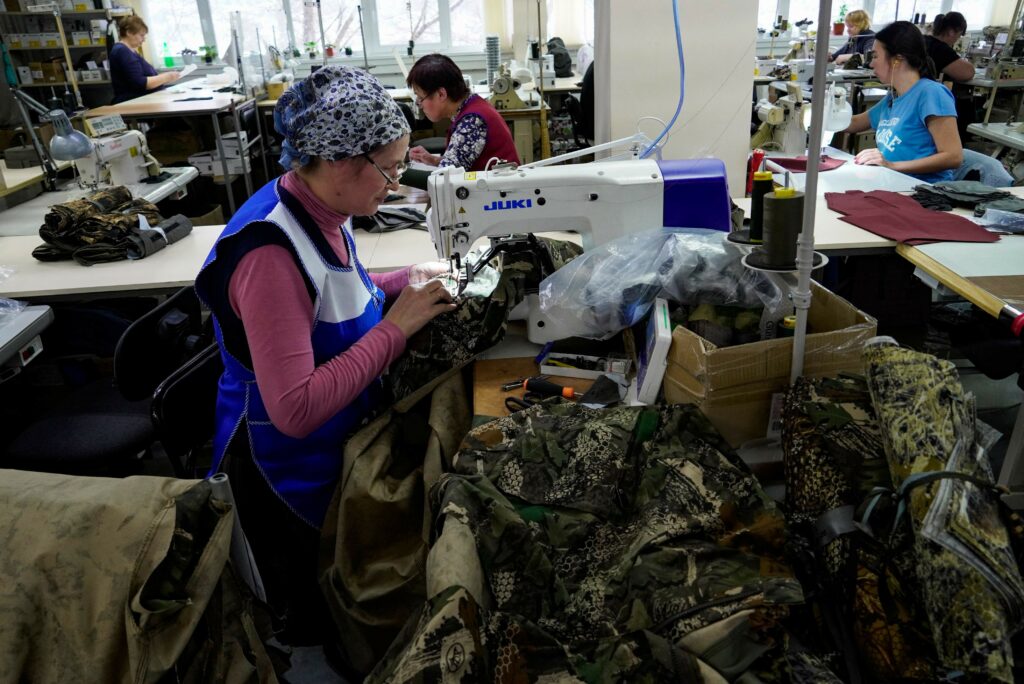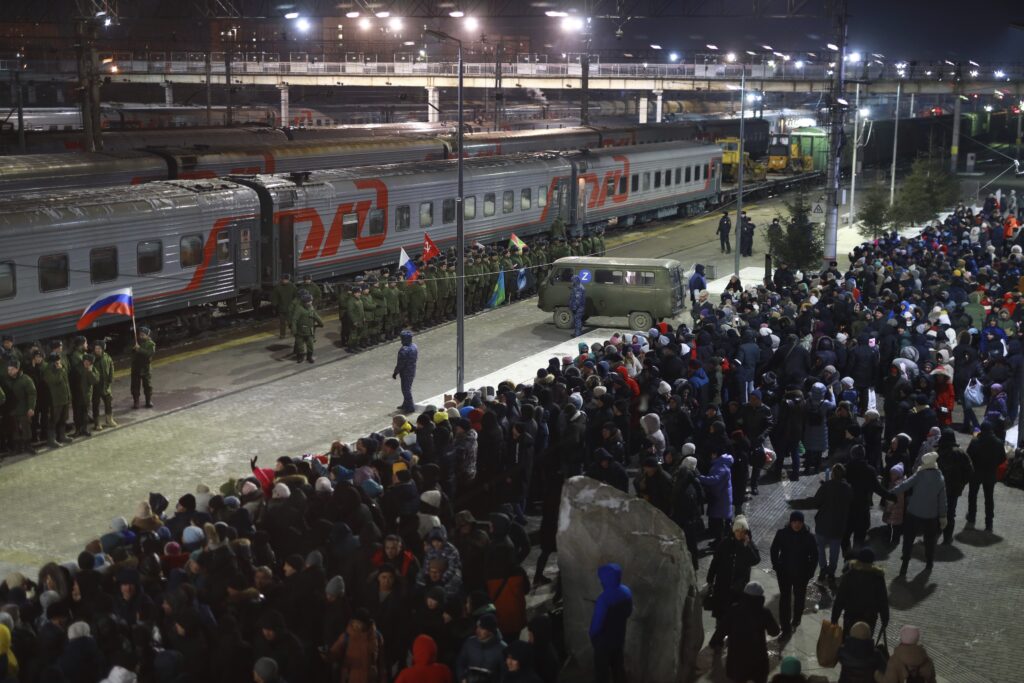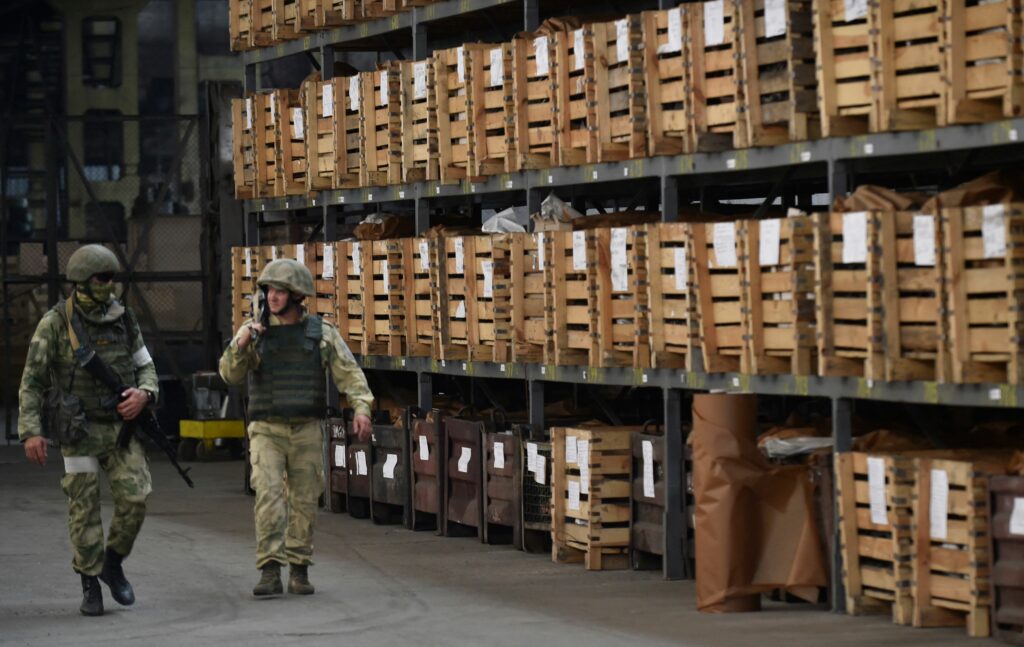Although the pro-Kremlin authorities in the Kherson and Zaporizhzhia Oblasts of Ukraine, occupied by the Russian army, are raising the issue of referendums more and more often, there is no ideology behind this campaign. The Russian authorities are not even trying to convince residents who had no intentions of joining Russia before the war of anything. That said, eight years ago an ideological campaign did precede the referendum in Crimea. Now President Putin is simply collecting lands of the former Soviet Union, whose collapse he regrets. The Kremlin is not going to truly take into account the opinion of their residents. Thus, it is campaigning in line with a modern Russian tradition intended to show Putin expected numbers and to enable officials and spin doctors to earn money.
Representatives of the pro-Russian administrations of the self-proclaimed republics of Donbas and the Kherson and Zaporizhzhia Oblasts have started announcing referendums on the incorporation of these regions into Russia. Officials in occupied Zaporizhzhia have even signed the corresponding orders.
Plebiscites are scheduled for mid-September. They are likely to be held on Russia’s single day of voting, 11 September. By now, preparations for the referendums should be in full swing, and they are: they are being organised by Russian spin doctors together with the siloviki and officials. However, this election campaign (and a plebiscite is also an election) is virtually devoid of its basic element — ideology. People are not being told what they should vote for — what message and what idea they are voting for. The historic event seems to resemble a run-of-the-mill regional campaign on the part of United Russia. A common slogan has been coined for the regions, ‘We stand with Russia’, and it has been posted on billboards. Astroturf movements are also using the same slogan.
‘It is important to confirm that this is an initiative of the people of our region. There are so many participants and active proponents… If you want something — and we all want to stand with Russia — then the whole universe will help us, and Russia will help us in the first place. And everything we do with love is bound to succeed’ said Vladimir Saldo, the head of the military-and-civil administration of the Kherson Oblast appointed by the Russian authorities, in trying to explain the meaning of the name of one of the forums (soon afterwards Saldo was admitted to hospital, and his seat went to a Russian nomad governor).
In essence, this is the wording of the referendum question: people should vote to ‘stand with Russia’. However, this slogan provides no explanation or justification why, in fact, one should stand with Russia. Of course, the newly formed movements hold forums and meetings where they talk about certain social initiatives and infrastructure plans and the restoration of housing, roads and utilities destroyed during the war. They are attended by public officials and public sector employees who have agreed to be friends with pro-Russian and Russian authorities (the usual contingent of such pre-election gatherings in Russia).
This is roughly what they say in the forums and meetings of the United Russia party during elections (with the exception of the military component, of course). In essence, the residents of the regions occupied by Russian troops are being told: you have to stand with Russia to rebuild houses, schools and hospitals destroyed by the Russian army. This is the simplest answer to the question of why to tick the ‘for’ box. However, this answer must be followed by deeper ideological questions which will inevitably arise among the population of the lands occupied by the Russian army after 24 February.
‘Why did people die? After all, people were living here relatively peacefully until February 24?’ (In the case of the Zaporizhzhia and Kherson Oblasts, the word ‘relatively’ can be safely omitted.)
‘Why were our homes and those of our friends and relatives destroyed?’
Of course, one can answer them with the same simple slogan — ‘so that you are now together with Russia, and it will restore what has been destroyed by the war’. But for many residents of the Zaporizhzhia and Kherson Oblasts, these words will mean little. People lived in the state of Ukraine; they did not seek to join Russia, and they did not understand the reason for doing so. But a neighbouring country entered their home uninvited and said: you will vote to continue to be with me, and I will not even explain why you need to.
Not surprisingly, according to street interviews commissioned by the Kremlin, only 30% of respondents in the Kherson and Zaporizhzhia Oblasts said they wanted their regions to join Russia. The same number expressed a desire to remain in Ukraine. It should be borne in mind that in public polling many respondents may not answer honestly — war is war. Even under such circumstances, the Russian authorities are not trying to provide an ideological basis for the referendums, to come up with appealing answers to the inevitable ‘why’ questions.
‘Even if stones fall from the sky’
During the plebiscite in Crimea, such answers were offered to the local population. They were irrational but comprehensible and close to the heart of a part (or perhaps the majority) of the peninsula’s residents, who had been pro-Russian for more than 20 years. Of course, such a referendum was illegal under Ukrainian and international law, but the Kremlin tried to rationalise it ideologically to Crimean residents. Spin doctors touched upon a long-nurtured dream of the pro-Russian population and suggested they vote for a ‘return to their home port’ despite hardships.
‘What’s next? Even if stones fall from the sky, we are in our homeland’: slogans like this one were printed on billboards in Crimea and Sevastopol in 2014.
The portion of the peninsula’s population who considered Crimea part of Russia and who were against Ukraine needed no other explanation. Although, of course, they had a selfish motive in mind: the standard of living in Russia at the time was higher than in Ukraine.
Obviously, this explanation does not work for the majority of residents of the Kherson, Zaporizhzhia and areas of the Donetsk and Luhansk Oblasts controlled by Ukraine before the war. Russia is not their ‘home port’. People did not greet the Russian military with flowers; they fiercely defended their land. Or they protested after towns and villages had been occupied. The Kremlin is not going to engage in a dialogue with them, at least at the level of promises, and does not even want to pretend that it is asking them anything.
Voting Russian-style
This is roughly how Russian elections have been conducted in recent years: if there is a procedure, let’s follow it, but we will still count the votes however it suits us. Hence the identical slogans used by candidates for governor and MPs, and not the best selection of candidates. They do not need to make an effort, since the officially mobilised voters will vote the way they are told to anyway, and if they do not vote according to expectations, the results can always be adjusted. Why, then, is the Kremlin holding elections and referendums in the Donetsk People’s Republic, the Luhansk People’s Republic and the Kherson and Zaporizhzhia Oblasts of Ukraine in particular?
First, Putin likes to constantly test his popular support and to see ‘beautiful’ voting results. That is why, for example, there was a vote over Putin’s constitutional amendments, even though the law did not require such a referendum. It is now assumed that the population of Donbas, the Kherson Oblast and Zaporizhzhia will vote ‘for’ Russia and therefore ‘for’ Putin. Thus, the Russian president will have more subjects.
Second, the Kremlin’s political bloc is proving its worth by holding elections. This spring, Sergei Kirienko, the head of the Kremlin’s internal political bloc, succeeded in convincing the top leadership of the need to hold direct voting for gubernatorial candidates. Elections are foreseen by law. And some people will always come and vote honestly for the governmental nominees. Why should they be deprived of such a possibility? In addition, election campaigns — and referendums in regions of Ukraine are no exception — give officials from the presidential administration and the spin doctors close to them a good source of income.
The technologies proven to get the right results — that is, mobilisation of an administratively dependent electorate and adjustment of the results — make the ideology of the campaign a matter of minor significance. The presidential administration is also holding new plebiscites according to the same philosophy. Spin doctors and nomad officials who have no idea about the region, about what its people think and what they want, are being delegated to these lands. They make up as vague a slogan as possible, organise so-called forums where they try to offer the electorate certain social promises, even though the voters might not want them. And then all that remains is to round up manipulated voters and tabulate the votes properly. There is no doubt that the plebiscites in the regions occupied by Russian troops will follow the same pattern.
But the Kremlin and Putin are not interested in all this. The Russian president is collecting lands; these lands, not their residents, are important to him. A servile entourage is collecting shards of the Soviet Union for Putin. That is why the news coverage focuses on the capture of towns and villages, which constitutes visible evidence of the advance of troops. The army is moving across the land, staining it with the colours of blood and ash. And then officials behaving like shift workers start repainting the map in the Russian tricolour. There is an ideology to the annexation of territory. Putin is trying to rectify what he sees as the greatest tragedy of all, the collapse of the USSR. But, of course, this ideology would not work as the ideology behind referendums. In such a case, people would have to be told that their houses were destroyed and lives turned upside down in the name of the geopolitical interests of the Russian president, and that they will live under such a ruler from now on.
The plebiscites will not make any practical sense for the Kremlin, except to enable the use of funds by officials and spin doctors and to raise Putin’s spirits. No one is convincing the pro-Ukrainian population of anything, and part of the pro-Russian population is already convinced. They marched in, occupied the towns and villages — now pay us salaries and pensions, and preferably better than in Ukraine. Most likely, those Ukrainians who do not want to stand with Russia will leave their native lands in silence. Such losses cannot be offset by shift workers from Russia. These regions will gradually become desolate and fall into decay. Another scenario is also possible. Namely, in the event of a counteroffensive by Ukrainian troops, there will be very few people in these regions who will definitely hold on to Russia. After all, even those who may have been hesitant about living in a neighbouring country have not been convinced that it is a proper and reasonable thing to do.










